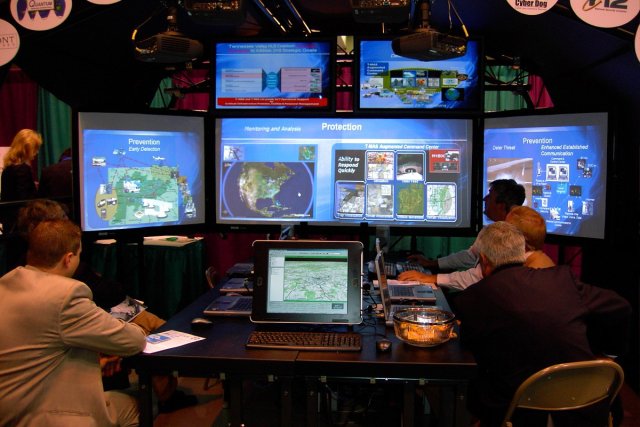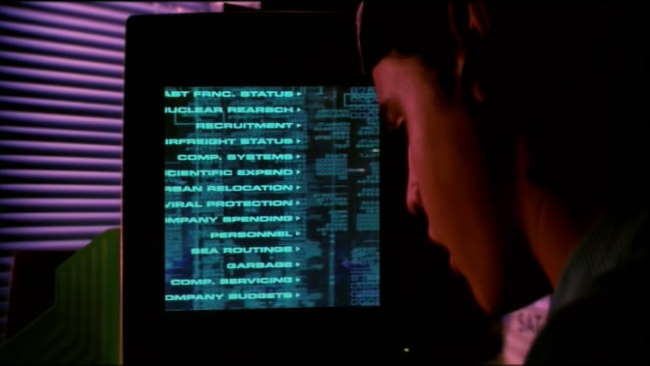September 23, 2007
Dan Rather: Corporations, Government runs newsrooms.
I know, it’s not something that would normaly be on the front of Cyberpunk Review, but what Dan Rather says about how the network “news” is being filtered and delivered to you…
Samantha Gross (Associated Press Writer):
Dan Rather said Thursday that the undue influence of the government and large corporations over newsrooms spurred his decision to file a $70 million lawsuit against CBS and its former parent company.
“Somebody, sometime has got to take a stand and say democracy cannot survive, much less thrive with the level of big corporate and big government interference and intimidation in news,” he said on CNN’s “Larry King Live.”
Rather cites the “discredited” 2004 story about Bush’s military service for making him a scapegoat, causing his removal from the CBS Evening News in 2005.
Sound familiar yet? One theme of cyberpunk is corporate control over society (see What is Cyberpunk?), and what better way to exercise that control than to inject propaganda into the evening news, displacing hard reality with brain-draining fluff about some pop-tart.
Ever wonder why the “news” seems dominated by the latest Britney Spears fuck-up while little to no negativity against the Bush administration is present? And why has the number of bloggers exploded, while traditional press and news outlets struggle to adopt the Internet’s abilities?
What’s the reality, Kenneth? Rather’s career has been historical, but also controversial at times, including an on-air confrontation with then Vice-President “Papa Bush.” Like father, like son; George Bush senior never gave Dan Rather another interview and junior has never been interviewed by him either. Ironically, it was Air National Guard documents that described junior Bush as “unfit” that began the end of Rather’s career. A Bush family vendetta against Mr. Rather? Quite possible…
But Rather’s beef goes beyond the Bush family; He also says that journalism has lost its guts:
Daniel Terdiman, Staff Writer, CNET News.com:
During his hour-long keynote address Monday at South by Southwest Interactive, Rather opined at length on the state of his profession, in which too many journalists have become lapdogs to power, rather than watchdogs.
…
Rather reiterated the journalist’s role as a watchdog.“Not as an attack dog…But what does the lapdog do? He just crawls into someone’s lap,” he said. “A good watchdog barks at everything that’s suspicious. I submit to you, the American press’ role is to be a watchdog.”
Part of the problem, according to the the CNET article, is that journalists don’t want to rock the boat and risk confrontation with the power elite so as not to jeopardize their access to them… something even Rather admits to doing. Unfortunately, this leads to the journalist becoming a puppet of the elite. Another problem is the growing consolidation of media companies that causes newsrooms to be more interested in keeping shareholders happy than finding the truth.
While he sees traditional journalists as seduced by corporate (and government) interests, he also sees hope in the Internet’s blogosphere:
“The Internet is a tremendous tool for not just news, (because) its potential is unlimited for that,” Rather said, but for “illumination and opening things up.”
…
Rather responded that he sees a lot of potential in the Internet, and in the blogosphere in particular, but that he worries about anonymity on a lot of Web sites and blogs.He said it’s very easy to attack someone when you don’t have to put your name to your complaints. He’s not sure how to strike the right balance between professional and citizen journalism, but he believes the market will eventually provide that solution.
A quest for the TRUTH… maybe. Reuters reports that Rather’s reason for the lawsuit isn’t about the money:
Reuters/Hollywood Reporter:
Instead, Rather said on CNN’s “Larry King Live” that he wants to use the litigation to find out what really happened behind the scenes after his discredited report on President Bush’s military record aired on “60 Minutes II” in 2004.

If this lawsuit leads to a gov-corp-newsroom connection being exposed, it will confirm the extent of the ruling power’s influence in crating a virtual reality to keep the sheeple clueless and sedate. If not, we can file it a conspiracy theory, complete with whispers of corporate control of the newsrooms.








